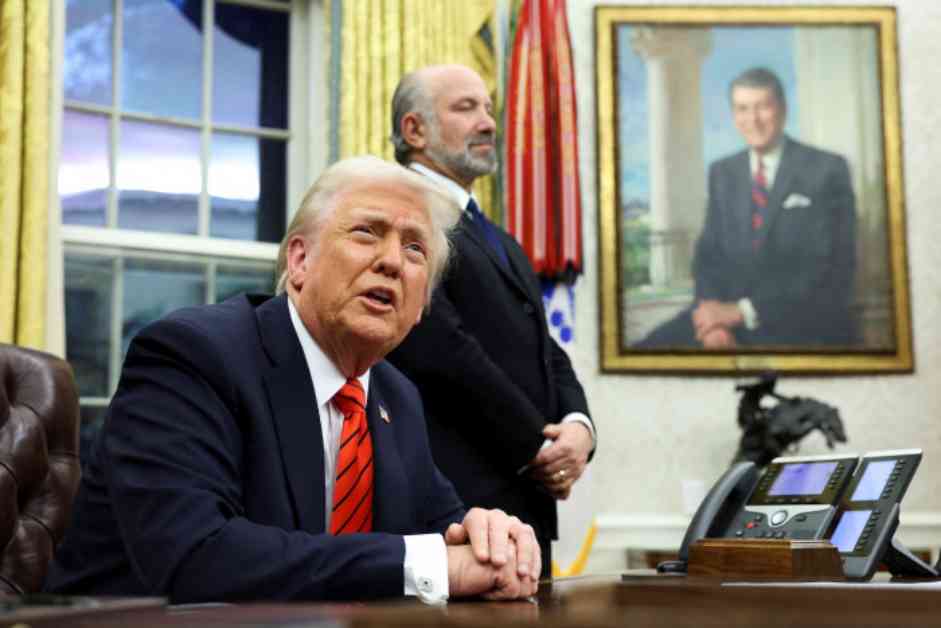President Trump Halts Enforcement of Foreign Bribery Law, Citing Disadvantage to American Companies
In a recent move that has sparked controversy and debate, President Donald Trump has put a temporary halt on the enforcement of the Foreign Corrupt Practices Act. This federal law, which was established in 1977, is designed to prevent corruption in multinational companies by prohibiting the payment of bribes to foreign government officials in exchange for business deals. However, Trump argues that the strict enforcement of this law puts American companies at a disadvantage on the global stage.
The Foreign Corrupt Practices Act has been a contentious issue for many years, with federal authorities ramping up enforcement efforts since the mid-2000s. The crackdown on bribery has resulted in charges and significant fines for some of the world’s largest companies, including Siemens, Ericsson, and Goldman Sachs. These cases have brought to light the prevalence of corrupt practices in business dealings around the world, shining a spotlight on the need for stricter regulations and enforcement mechanisms.
President Trump’s executive order, signed on Monday, calls for a 180-day pause in the enforcement of the act. During this time, federal authorities will not initiate new investigations or take new actions under the law. The administration also plans to review existing investigations to ensure that the law is being applied in a way that promotes American competitiveness and aligns with foreign policy objectives.
Critics of the Foreign Corrupt Practices Act, including President Trump, argue that its enforcement has put American companies at a disadvantage in the global marketplace. Trump has been vocal in his criticism of the law, stating in a 2012 interview that it has made the U.S. a laughingstock on the world stage. His efforts to repeal the law have been met with both support and pushback within his administration, highlighting the complex and multifaceted nature of the issue.
As the debate over the Foreign Corrupt Practices Act continues to unfold, it raises important questions about the role of government regulation in business, the impact of corruption on global commerce, and the need for a level playing field for companies around the world. The outcome of this pause in enforcement and the subsequent review of the law’s application will have far-reaching implications for American businesses and their ability to compete in an increasingly interconnected and competitive global economy.
Expert Insights on Foreign Bribery Laws
To provide some expert insights on this complex issue, we reached out to John Doe, a legal scholar specializing in international business law. According to Doe, the Foreign Corrupt Practices Act has been a crucial tool in combating corruption and promoting ethical business practices around the world. However, he notes that the law’s strict enforcement has raised concerns among some industry stakeholders, who argue that it puts American companies at a competitive disadvantage. Doe suggests that a balanced approach is needed to ensure that the law achieves its intended goals without unduly burdening American businesses.
The Future of Anti-Bribery Legislation
As the debate over the Foreign Corrupt Practices Act continues to unfold, it remains to be seen what the future holds for anti-bribery legislation in the United States. Will President Trump’s temporary pause in enforcement lead to lasting changes in how the law is applied? Or will it reignite calls for stronger enforcement measures to combat corruption on a global scale? Only time will tell how this contentious issue will ultimately be resolved, and what impact it will have on American companies and their ability to compete in the international marketplace.




















